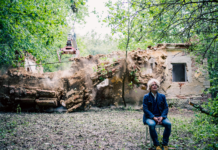
Everything will be fine. Or at least better. Not a bold prognosis from the perspective of the current pandemic. But how?
The „Tage der Utopie“ in Götzis in Vorarlberg try to develop sketches for it. Desirable utopias and courageous designs for a better life.
When Hans Joachim Gögl and Josef Kittinger launched the „Tage der Utopie“ almost 20 years ago, they focused on one aspect above all: „There‘s no need to be afraid of good new ideas.“ Over the years, their „Festival for a Good Future“ has become a much-appreciated meeting place and venue for people who don‘t just lament about the future, but above all recognize in it the opportunities and possibilities for realization that are open to all of us. A meeting place for optimists who believe in the positive power of self-fulfilling prophecies.
Much of what was discussed at the „Tage der Utopie“ in recent years has since become reality. And above all, Vorarlberg itself has be- nefited in many ways from the unflinching optimism of the two program makers. Ideas for spatial design, direct-democratic concepts and models: much of this has meanwhile been tried out or even implemented. That‘s why even the pandemic can‘t really do anything to the „Tage der Utopie“. This year, the main lectures will not take place indoors as usual, but on the Frischluft Kul- turbühne in Ambach (dress warmly!).
The topics that will be discussed this year anticipate utopias that may still seem farfetched to many, but are not so unrealistic: 5-hour day with full wage compensation. The end of the extinction of species. The public space belongs to the children again, not to the car. It all sounds rather absurd today. But it is not.
The philosopher and author Ariadne von Schirach will address the question of overcoming fears about the future. Bulgarian writer Ilija Trojanow will explore the question of how to tell utopias in such a way that everyone immediately longs for them. And evolutionary biologist Matthias Glaubrecht analyzes what we can learn about the future of biodiversity from the massive Chicxulub meteorite impact, which probably triggered the extinction of the dinosaurs and gave mammals and humans the space to flourish in the first place.
None of us will be able to think 65 million years into the future. The generation after next is perhaps easier to imagine. Reiner Nagel, architect and urban planner at the German „Bundesstiftung Baukultur“ (Federal Foundation for Building Culture), is concerned with the kind of reality built by humans that our grandchildren and greatgrandchildren could live in.
As a reply to a quote from the former Austrian chancellor Franz Vranitzky one could say: If you have utopias, you don‘t need a doctor. On the contrary. They take the future into their own hands.
Tage der Utopie
26.04. – 01.05.2021
Götzis/Ambach Vorarlberg
www.tagederutopie.org











